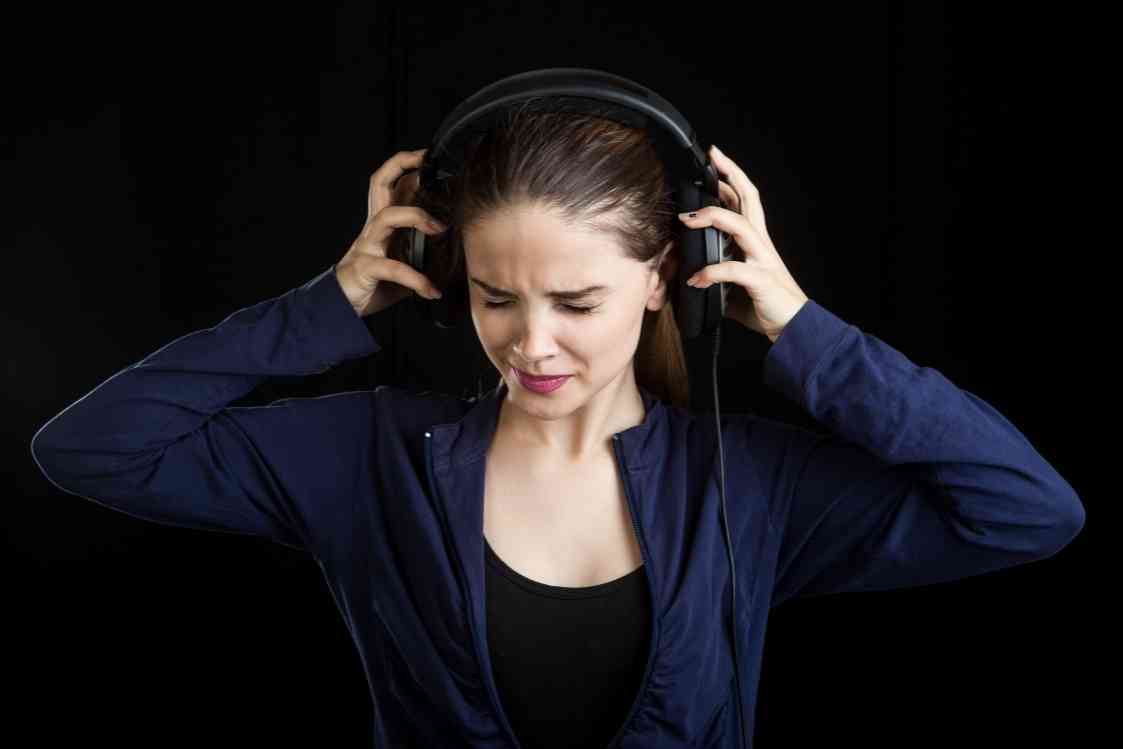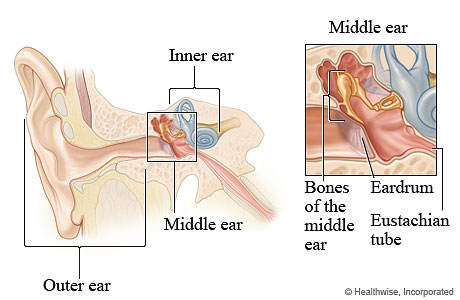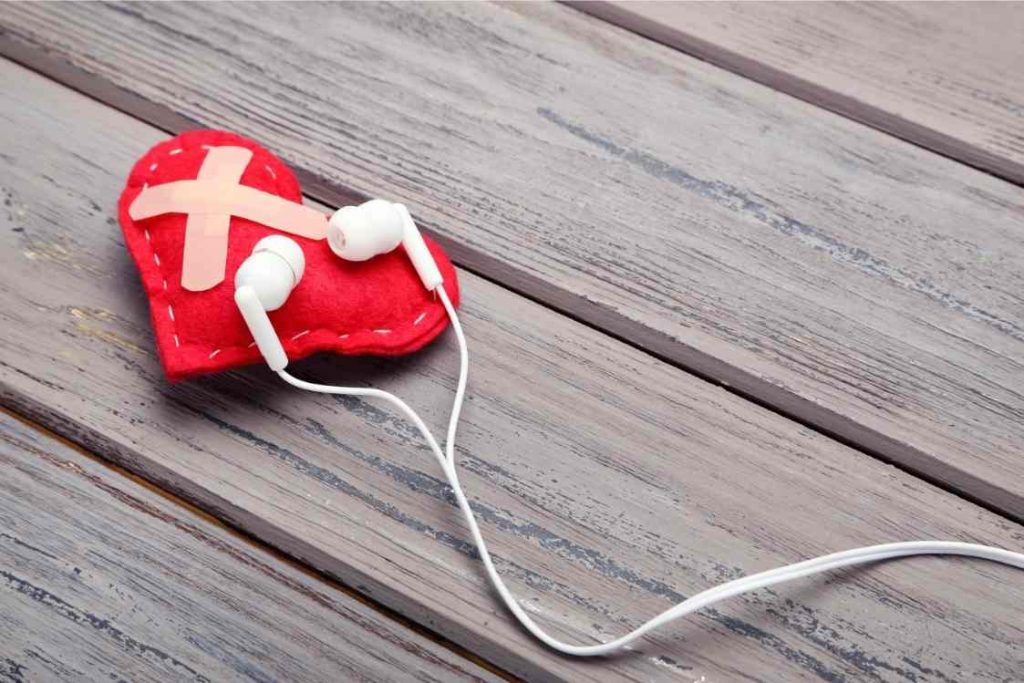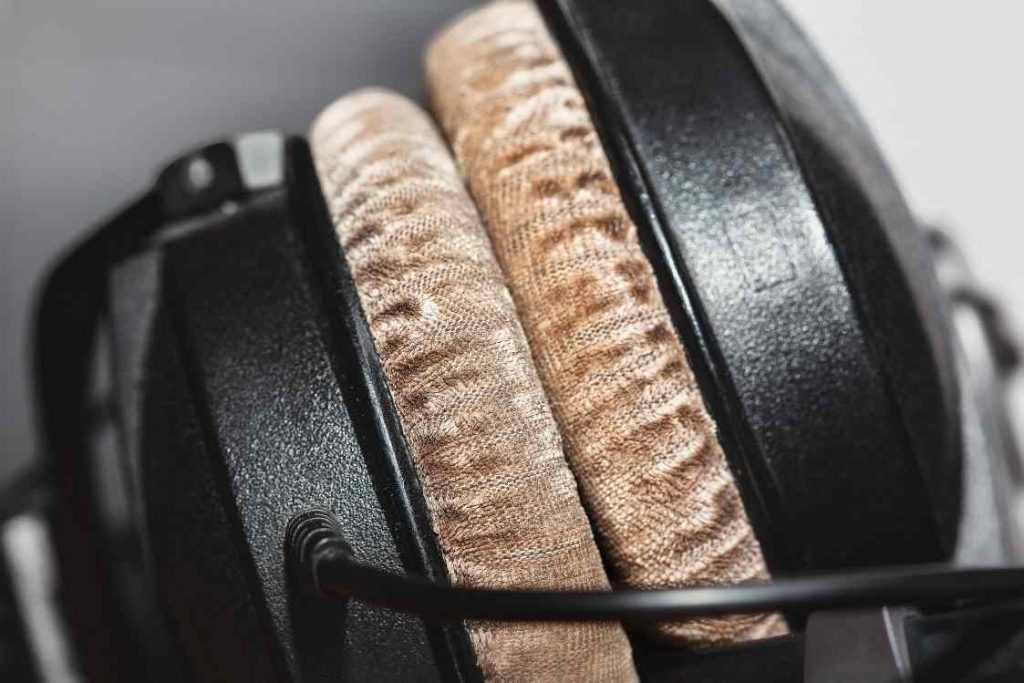Physical Address
304 North Cardinal St.
Dorchester Center, MA 02124


We’re passionate about music and our recommendations are genuine. If you buy through links on our site, we may earn a small affiliate commission at no extra cost to you.
Did you know that one of the major causes of hearing loss is noise-induced hearing loss? Loud sounds can be very damaging to your ears and may lead to permanent damage. But did you know that even listening to music on your headphones for long periods can cause hearing loss?(1)
Even though most people agree that listening to music through headphones is enjoyable and relaxing, they don’t realize how dangerous it really is. If you’re reading this right now, then chances are you’ve already experienced some degree of hearing loss due to your headphones use. Our article will guide you through what hearing loss is, what the symptoms are and how you can prevent hearing loss from headphones.
Hearing loss can be defined as the partial or total inability to hear sounds caused by either a temporary or permanent lack of function in the ear.
This may occur due to an accident, childbirth, exposure to loud noises, age-related hearing loss, and other causes. Hearing loss can be mild, moderate, or severe. It typically affects one ear over the other, and it may vary in severity throughout time.
Based on the Centers for Disease Control and Prevention reports, 17% of Americans between the ages of 20 and 69 suffer hearing loss due to exposure to loud sounds.
There are three types of hearing loss:
If you’re wearing headphones, it’s easy to listen at a high volume. Unfortunately, this can cause hearing loss because your ears are being exposed to loud noises for long periods.
Sound is created due to a sensory reaction in your brain following the vibration of tiny hairs within a chamber in the inner ear. When sound waves move these hair cells, they create different sounds depending on what type of cell it’s touching and how strong that wave was when it hit.


Suppose you’re exposed to loud music for too long or frequently. In that case, this can cause damage to those delicate strands, which will disrupt their function, causing them to no longer react appropriately with incoming vibrations from outside sources.
Depending on how loudly a person listens to music for an extended period, there can be two different results:
If you have been exposed to loud noises for extended periods, you may be at risk of hearing loss. This can occur in one or both ears, and some common hearing loss symptoms include:
Thankfully after some time, your hearing should improve. However, if you keep abusing your ears like this – the damage could become permanent.
Earphones and earbuds are more dangerous to hearing than other types of headphones because they put the speaker closer to your ear.


Earbuds have speakers that emit sound waves with much higher intensity levels than conventional headphones or loudspeakers. However, when you use them for long periods, these high-intensity sounds can damage your delicate hair cells and cause irreversible hearing loss over time.
We recommend using a pair of over-head headphones instead because they don’t put the speaker directly next to your ears and are less likely to damage your hearing.
The most essential yet straightforward rule to remember when protecting your hearing is to turn the volume down.
Turn the volume down so that you’re not damaging your ears in any way, and set a maximum volume level of 60%. Experts recommend this because the sound waves are more likely to harm delicate hair cells within our ears at higher volumes. Also, if the music coming from your headphones is loud enough for others to hear, it could be damaging your hearing.
You’ve probably heard that it’s not just the volume but also the time duration of exposure to loud sounds. The more you listen to loud music, the longer you listen may lead to permanent hearing damage. However, keep in mind that lower volumes can handle longer listening times. So whether you’re listening to music, a podcast, or watching a movie on your headphones, take frequent breaks.
Follow the 60/60 rule to keep your hearing health safe: listen at maximum volume for only 60 minutes and then take a short break.
Many phones and other devices offer the user a way to adjust settings to restrict volume levels. Check your device’s instructions for possible adjustments, or contact customer service if you need assistance locating this option on your listening device.(4)
Though they may seem like the same thing, headphones and earbuds are actually quite different. Headphones refer to devices that sit over your ears, with sound emitting from speakers on either side of them. On the other side, earbuds are small silicone or hard plastic pieces that fit snugly in your ear canals.


Here is the crucial part – when you are wearing earbuds, you allow the sound waves to travel easily through the eardrum. Moreover, being closer means they reverberate louder than traditional headphone designs that sit outside the ear canal or the over-ear headphones. This may lead to hearing loss if sustained for long periods. Some people may think this is an insignificant difference, but even this minimal difference is crucial in the long run.
It’s not like we all spend our days with headphones blasting in the background to numb out any unwanted sounds around us. But, when you’re trying to concentrate, and there are too many distractions for your liking, don’t just turn up the volume. You may hear the music less due to the outside noise. Still, if you turn up the volume beyond the safety level, this will eventually harm your hearing health. Instead, use the right headphones that block out external noise.
Noise-canceling headphones are designed specifically to combat this problem by actively monitoring your surroundings and producing soundwaves that directly counter those from external sources like cars or construction sites. The result is a continuous reduction in ambient noise without having to crank up the volume on your device constantly.
Noise-canceling headphones help reduce the amount of noise you hear from your surroundings. This is great for blocking out everything and focusing on what matters to you.
If you’re thinking your hearing might be diminishing, it’s never too early to get a check-up. The earlier the problem is diagnosed, the sooner it can potentially be resolved.
Also, consider getting regular tests if you work in high-noise environments for long periods or are constantly exposed to loud noise through hobbies and leisure activities like music gigs every night on top of that.
Yes, prolonged exposure to headphones sound may lead to a temporary or permanent hearing loss. In fact, the World Health Organization (WHO) estimates that 1 billion teenagers and young adults are at risk of hearing loss due to unsafe listening practices.
To prevent your ears from permanent damage, you should make sure that your listening sessions are shorter than 60 minutes and take breaks in between. For example, the FDA recommends taking a 10-15 minute break from listening every hour and using a volume no higher than 60% of the max volume.
Listening to music on your earbuds or earphones at high volumes for a prolonged period can damage your hearing. As a result, you’re not only just going deaf but also putting yourself at risk for tinnitus (ringing noise in ears) and other serious health problems. However, earphones aren’t inherently dangerous, but they need proper care.
As earbuds sit close to your ear canal, they make it easier for the sound to enter your ears easily. That may increase the sound level to 6-9 dB.
If you want to keep listening to music without risking permanent hearing loss, buy a pair of noise-isolating in-ear headphones or over-ear headphones instead of regular earbuds. Plus, they’ll block out more outside sound. So you don’t have to crank up the volume as much when you’re listening on public transportation.
The American Academy of Audiology recommends listening to music with headphones at 60-85 decibels for less damage. However, If you listen around 100 dB, it is recommended that your usage be limited to 15 minutes per session.
It’s important not to overdo things when using headphones because they could damage your eardrums or even causing major hearing loss problems later on down the line.
Not more than 60 minutes at a time.
The Centers for Disease Control and Prevention (CDC) has released new guidelines to prevent noise-induced hearing loss. They recommended people not listen to music at more than 60 percent of the maximum volume and refrain from wearing earphones or headphones for more than 60 minutes. In addition, to protect your ears during this period, it is advised that you take a ten-minute break every 60 minutes.
The benefits of using headphones outweigh the risks. It can be challenging to know when and how to use your headphones to avoid hearing loss from headphones. Still, with proper care, they are a great piece of technology that makes it possible to listen to music anywhere you go in high quality.
References:
1.Deafness and hearing loss from https://www.who.int/news-room/fact-sheets/detail/deafness-and-hearing-loss
2.Conductive Hearing Loss from https://www.enthealth.org/conditions/conductive-hearing-loss/
3.What is Sensorineural Hearing Loss? from https://www.healthline.com/health/sensorineural-hearing-loss
4.Healthy headphone use: How loud and how long? from https://www.health.harvard.edu/blog/healthy-headphone-use-how-loud-and-how-long-2020072220565